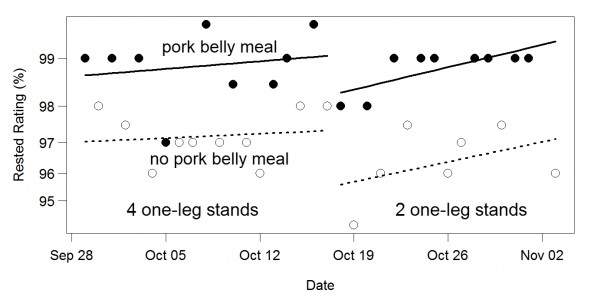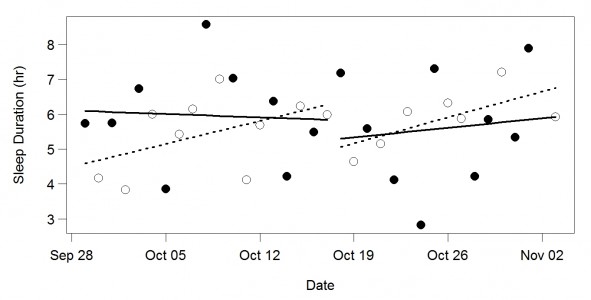After I discovered that butter made me faster at arithmetic, I started eating half a stick (66 g) of butter per day. After a talk about it, a cardiologist in the audience said I was killing myself. I said that the evidence that butter improved my brain function was much clearer than the evidence that butter causes heart disease. The cardiologist couldn’t debate this; he seemed to have no idea of the evidence.
Shortly before I discovered the butter/arithmetic connection, I had a heart scan (a tomographic x-ray) from which is computed an Agaston score, a measure of calcification of your blood vessels. The Agaston score is a good predictor of whether you will have a heart attack. The higher your score, the greater the probability. My score put me close to the median for my age. A year later — after eating lots of butter every day during that year — I got a second scan. Most people get about 25% worse each year. My second scan showed regression (= improvement). It was 40% better (less) than expected (a 25% increase). A big increase in butter consumption was the only aspect of my diet that I consciously changed between Scan 1 and Scan 2.
The improvement I observed, however surprising, was consistent with a 2004 study that measured narrowing of the arteries as a function of diet. About 200 women were studied for three years. There were three main findings. 1. The more saturated fat, the less narrowing. Women in the highest quartile of saturated fat intake didn’t have, on average, any narrowing. 2. The more polyunsaturated fat, the more narrowing. 3. The more carbohydrate, the more narrowing. Of all the nutrients examined, only saturated fat clearly reduced narrowing. Exactly the opposite of what we’ve been told.
As this article explains, the original idea that fat causes heart disease came from Ancel Keys, who omitted most of the available data from his data set. When all the data were considered, there was no connection between fat intake and heart disease. There has never been convincing evidence that saturated fat causes heart disease, but somehow this hasn’t stopped the vast majority of doctors and nutrition experts from repeating what they’ve been told.


